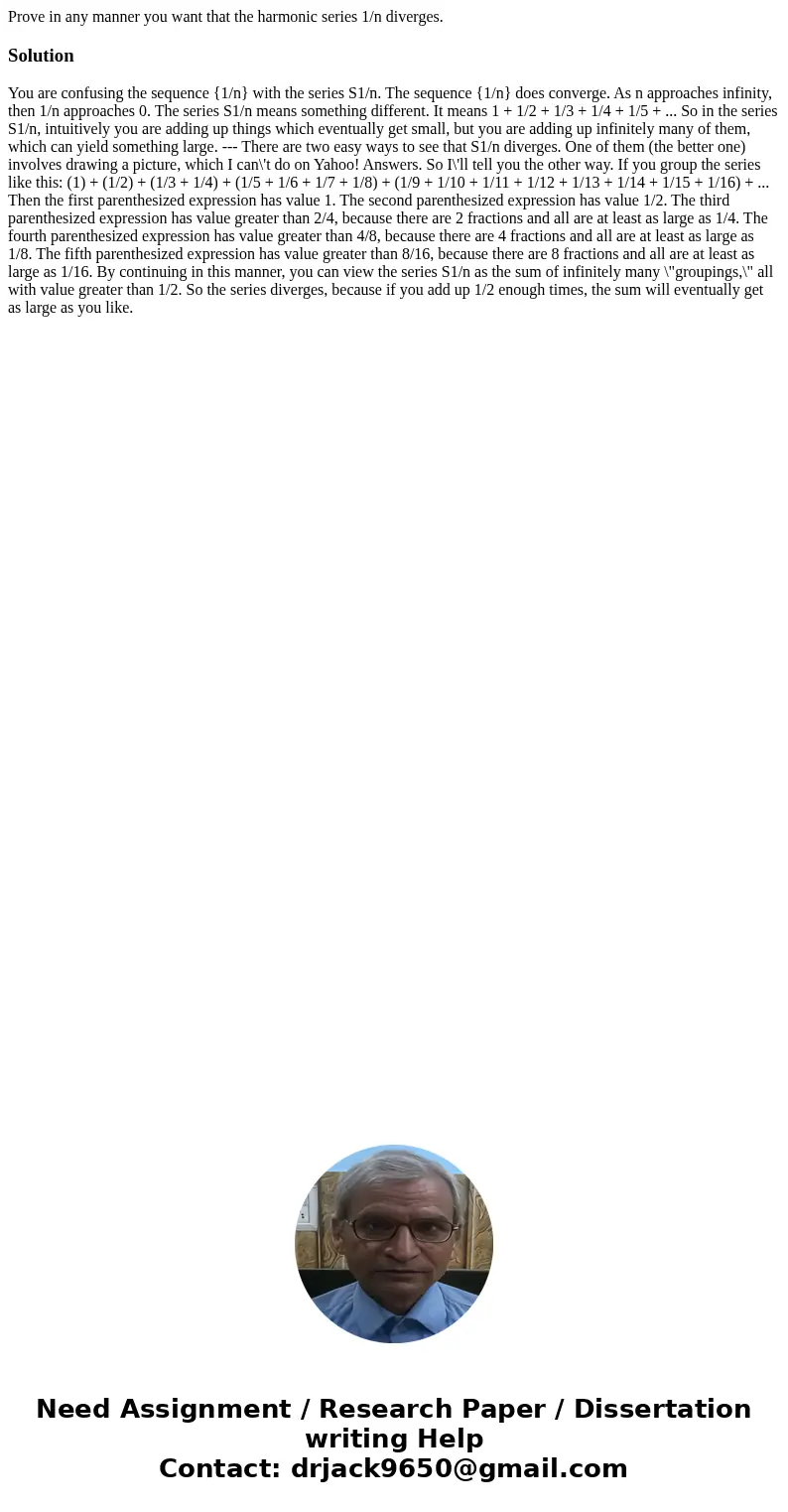Prove in any manner you want that the harmonic series 1n div
Prove in any manner you want that the harmonic series 1/n diverges.
Solution
You are confusing the sequence {1/n} with the series S1/n. The sequence {1/n} does converge. As n approaches infinity, then 1/n approaches 0. The series S1/n means something different. It means 1 + 1/2 + 1/3 + 1/4 + 1/5 + ... So in the series S1/n, intuitively you are adding up things which eventually get small, but you are adding up infinitely many of them, which can yield something large. --- There are two easy ways to see that S1/n diverges. One of them (the better one) involves drawing a picture, which I can\'t do on Yahoo! Answers. So I\'ll tell you the other way. If you group the series like this: (1) + (1/2) + (1/3 + 1/4) + (1/5 + 1/6 + 1/7 + 1/8) + (1/9 + 1/10 + 1/11 + 1/12 + 1/13 + 1/14 + 1/15 + 1/16) + ... Then the first parenthesized expression has value 1. The second parenthesized expression has value 1/2. The third parenthesized expression has value greater than 2/4, because there are 2 fractions and all are at least as large as 1/4. The fourth parenthesized expression has value greater than 4/8, because there are 4 fractions and all are at least as large as 1/8. The fifth parenthesized expression has value greater than 8/16, because there are 8 fractions and all are at least as large as 1/16. By continuing in this manner, you can view the series S1/n as the sum of infinitely many \"groupings,\" all with value greater than 1/2. So the series diverges, because if you add up 1/2 enough times, the sum will eventually get as large as you like.
 Homework Sourse
Homework Sourse